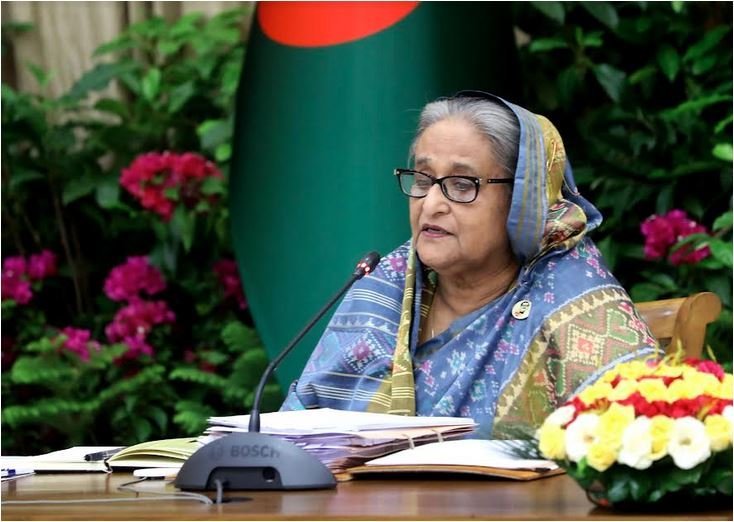Prime Minister Sheikh Hasina said that the process of importing LNG (Liquefied Natural Gas) from the spot market has already been taken to meet the demand for gas in various sectors. Prime Minister Sheikh Hasina gave this information in response to a question by Jatiya Party MP Fakhrul Imam in the Jatiya Sangsad on Wednesday. Speaker Shireen Sharmin Chowdhury presided over the question-and-answer table at the beginning of the meeting. Highlighting the reasons for the increase in gas prices, Prime Minister Sheikh Hasina said that in the context of the Russia-Ukraine war, there is instability in the prices of all types of energy worldwide. Apart from this, other costs related to energy, such as insurance costs, risk costs, and bank interest, have to be adjusted against the value of money against the US dollar. Hence the expenditure in the energy sector as a whole has increased tremendously. As a result of this, the import price of LNG in the world market has increased to an abnormal amount, so the government had to give a huge amount of subsidy in this sector. The Prime Minister said that the current agricultural irrigation season, the upcoming Ramadan, and summer to meet the increased demand for gas in electricity generation, keep the production in the industrial sector uninterrupted, and manage various export-oriented factories on their own. To continue captive power generation, the increased demand has to be met by importing LNG at a higher price from the spot market. That is why the government has decided to increase the price of gas used only in electricity, industry, captive power, and commercial sectors, leaving other consumer categories unchanged. The process of importing LNG from the spot market has already been adopted to meet the demand for gas in those sectors. Sheikh Hasina said that in 2008, the daily gas production capacity was 1 thousand 744 million cubic feet. In 2018, the production capacity increased to 2 thousand 750 million cubic feet. And currently, the daily gas production capacity is 2 thousand 300 million cubic feet. Prime Minister Sheikh Hasina explained the reason for the increase in the price of electricity. She said that the use of imported liquefied gas, the increase in the price of gas and fuel oil in the international market, and the provision of uninterrupted and quality electricity facilities in the electricity generation, transmission, and distribution system. Investment in development, adjustment between production cost and selling price, and adjustment of the value of taka against foreign currency increase the price of electricity at wholesale and retail levels. The Prime Minister said that the amount of subsidy in the electricity sector in the financial year 2021-22 was about 30 thousand crore takas. Considering the overall economic condition of the country, the government is working to reduce the subsidy in the power sector in stages. In response to the question of Rustam Ali Farazi, a member of parliament of the National Party, Prime Minister Sheikh Hasina said that the government is keeping a careful eye on global observations related to the risk of recession in the world economy in 2023 and the impact of a possible recession. Bangladesh is taking various steps to keep it free. Fiscal and monetary policies are being coordinated very carefully. The government has taken measures to reduce unnecessary expenditure to continue the flow of necessary resources to the productive and social protection sectors. Prime Minister Sheikh Hasina said that the impact of economic recession could be mitigated and avoided to a large extent if the flow of resources in the income-generating productive sector continues and the purchasing power of marginalized people is kept normal under the social protection program. Prime Minister Sheikh Hasina said in response to the question of Kazim Uddin Ahmed, a member of parliament of the government party, “The unprecedented success of increasing agricultural production and achieving self-sufficiency in food in Bangladesh during the Awami League government has caught the attention of the world.” According to the election manifesto of the Awami League, one of the goals of the government is to ensure food security and increase the export of agricultural products. For this purpose, our government is reforming fertilizer management, providing incentives to small and marginal farmers in natural disasters, and providing development assistance in agricultural materials including fertilizers. Mentioning that agricultural machinery is being provided with development assistance to introduce a modern agricultural system in the country, the Prime Minister said, low-interest agricultural loans, affordable fertilizers, improved seeds, and irrigation are being provided to help farmers. As a result, despite climate change and the impact of the Covid-19 pandemic and the global crisis, the development of agriculture and the introduction of modern agricultural systems has continued.

